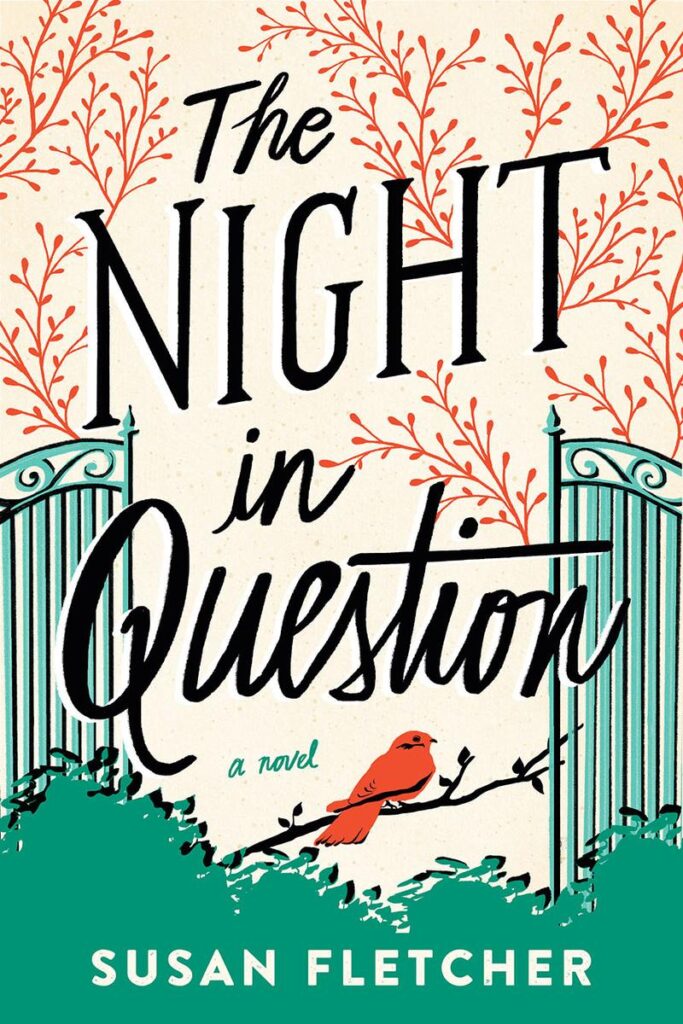Dana Stabenow just sent a review of Susan Fletcher’s debut mystery, The Night in Question. The book was a First Mystery Club Pick for The Poisoned Pen. You can place a special order now, or pre-order the paperback, which comes out in May. https://bit.ly/4ijXIYx.
Here’s Stabenow’s review of The Night in Question.
The Night in Question
by Susan Fletcher
Eighty-seven year old Florrie Butterfield loses her leg below the knee and perforce moves from her beloved cottage in the Malvern Hills into Babbington Hall, a country estate turned adult residence. It is a more benign change than it might have been.
She is in assisted living, this means therefore, that Florrie is allowed to boil her own kettle, cook an egg if she chooses to—and she can eat her meals from her own crockery, which is mismatched and chipped, but it’s hers, all the same…Indeed, the only real difference in Florrie’s life these days is that she has support—a word that has changed its meaning with age. In her youth, support had meant family money or a good brassiere.
A cheerful person, she does not despair, and in her wheelchair with a pair of rusty secateurs on her lap makes the wild estate garden her own and makes friends of the other residents, including one Arthur Potts, until, sadly, Arthur trips and falls in that same garden and dies.
And then Renata, Babbington Hall’s manager, falls, too, out of a third-story window and into a coma from which it is feared she may never wake. This on the evening of the very day she and Florrie have trysted to meet on the terrace for pink lemonade so that Florrie may give Renata the benefit of Florrie’s advice on love and men.
And isn’t that quite something? That Renata saw that adventurous, bright-eyed Florrie? Who is, one might argue, the real and proper one? To be seen. It feels so invigorating—and so very kind that, in truth, it makes Florrie a little emotional. And heaven only knows when she last had pink lemonade.
Did Renata jump, as everyone immediately assumes? Did she fall? Or was she pushed? Because Florrie, perched precariously on her one leg at the window, had been watching the lightning of a passing storm and she saw—and heard—Renata fall, and she doesn’t agree with the general consensus that Renata jumped. And thus, without ever leaving the grounds, Florrie conducts an inquiry into what she thinks she may have seen — and heard — on the night in question. With the able assistance of one Stanhope Jones, a fellow resident, Florrie observes the demeanor of Babbington’s residents at church, interviews the residents individually and the vicar as well, questions the servants, and slowly, painstakingly puts together a story that looks a lot less like perceived wisdom and a lot more like the truth, and not without risk to Florrie’s person, either.
That is the skeleton of the story but its firm flesh is the incredible life Florrie has lived and which explains those Nepalese prayer flags hanging in her living room, the broderie anglaise sheets, the police badge, the linen napkin from the Sunshine Hotel in Lusaka, Rhodesia, the dried Scottish thistle, the pale blue silk cravat, and every letter her husband ever wrote her. Ever so delicately, Fletcher plucks out the heart of Florrie’s mystery, for us and for Florrie herself.
Both plots, the characters, the setting (all of them) are wonderfully written. A fable for our times, and the chapter Florrie’s best friend Pinkie is the reason this book will live forever in my library.
Dana
Follow my blog here.
Subscribe to my newsletter here.

